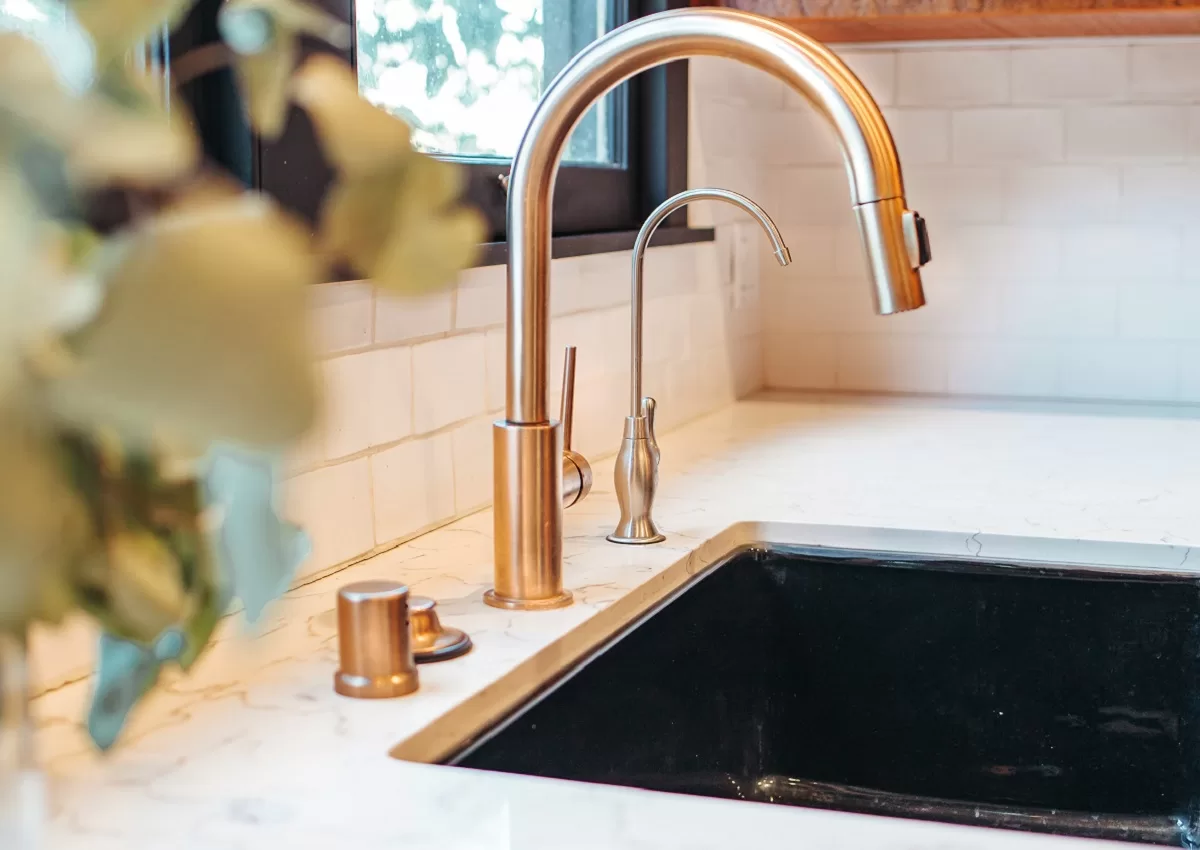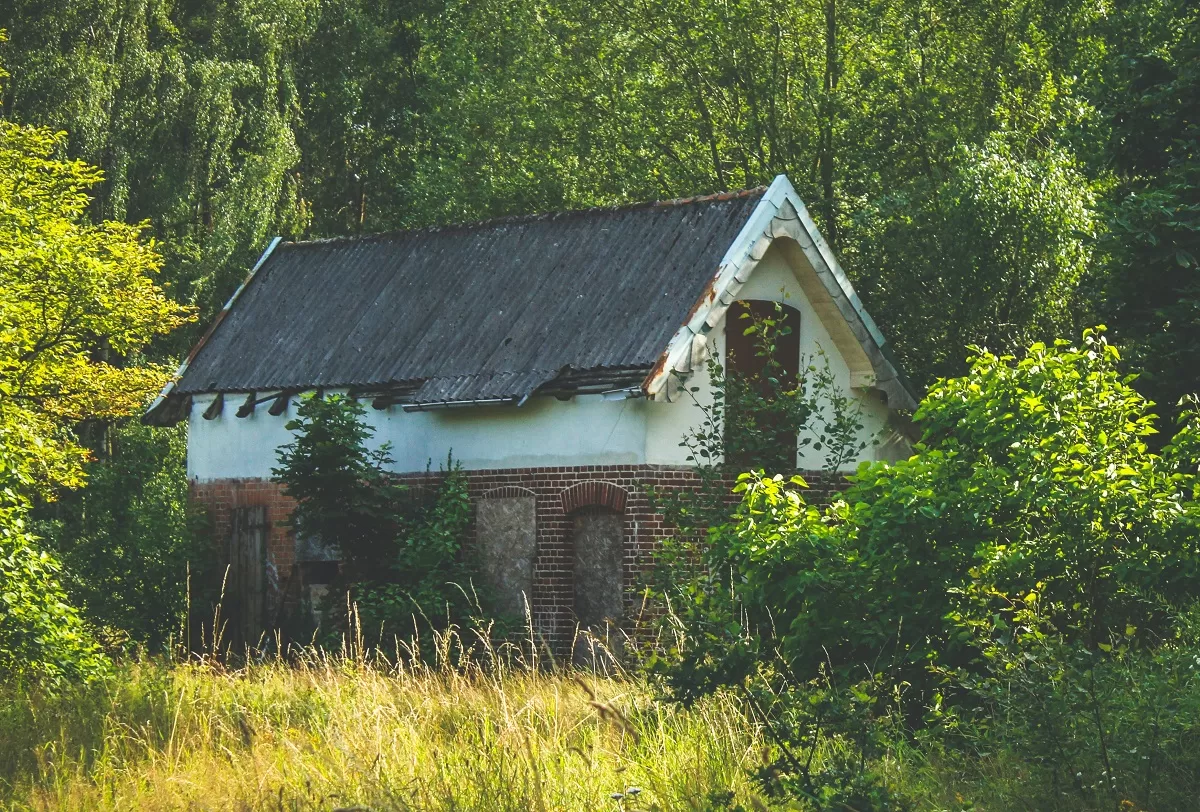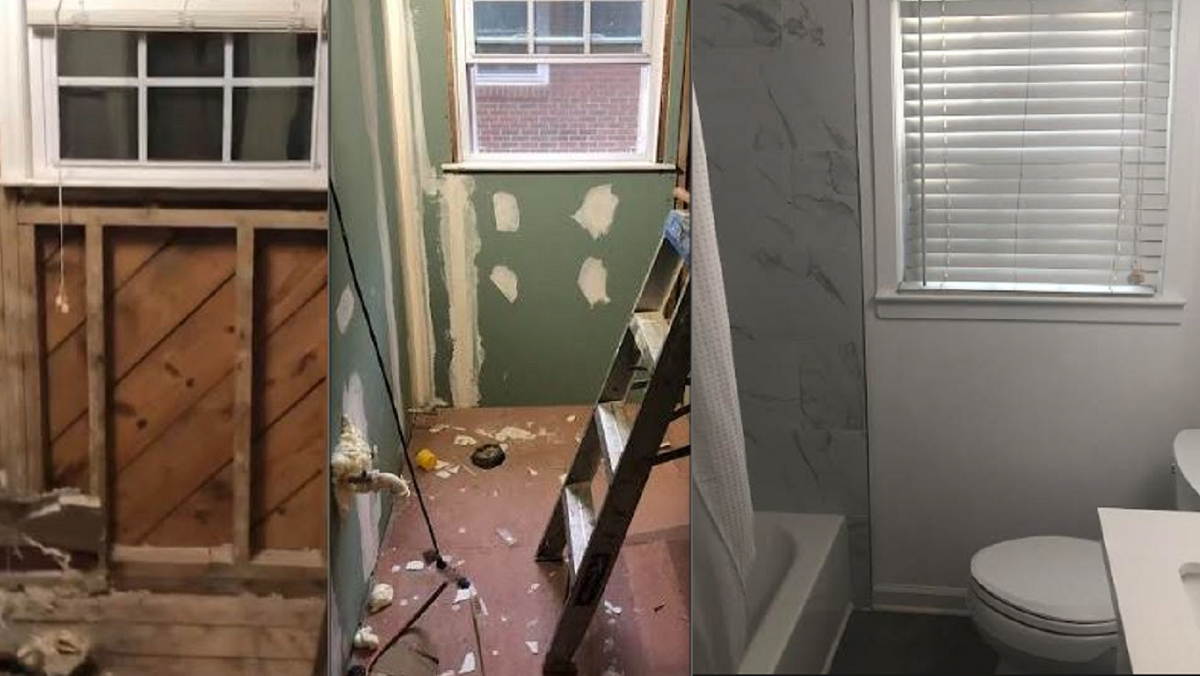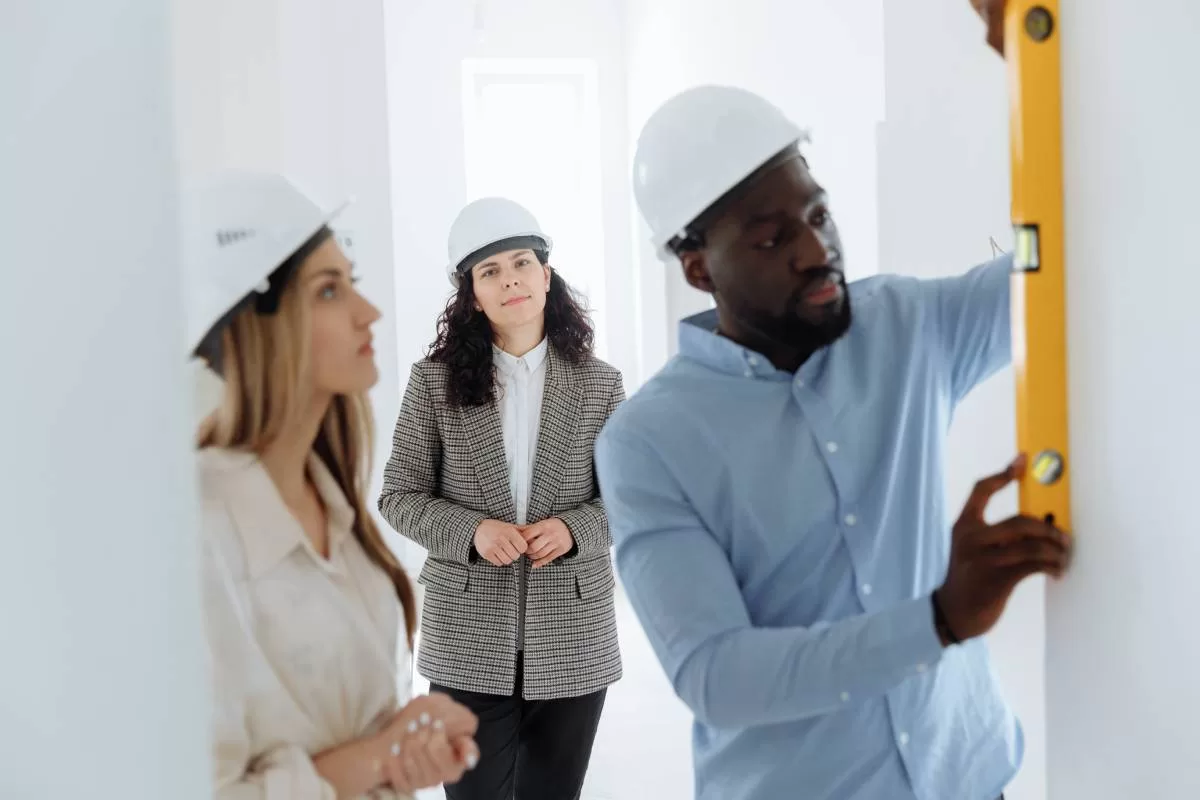-
If you own a home, sooner or later you’re going to have some plumbing problems. It’s not necessarily anybody’s fault, except the pipes in your newer or older home. That’s when you may need a plumber.
Looking for a plumber in Atlanta or any other metropolitan city can be difficult, if you don’t know how to get around it. Courtesy of our Home Improvement series, we can help you.
This article will show you step-by-step how to hire a plumber for your home or business.
The reason why you need to be careful with who you hire to fix your pipes is because there are a lot of scammers out there. But let’s start with the problem and go from there.
Identify Your Plumbing Issue
To the best of your ability you need to find out what exactly is the problem with your plumbing. Is there a leak? Do you have water damage on a floor, the ceiling or between the walls?
Determine the specific plumbing issue you need to address. Is it a leak, a clogged drain, a water heater problem, or a larger plumbing project like a bathroom remodel? Understanding your needs will help you find a plumber with the right expertise.
Shop For a Plumber
It’s time to go plumber-shopping. You can do this online but you also need to gather recommendations from friends, family and associates.
Seek recommendations from people who have had positive experiences with plumbers in your area. Personal referrals can be valuable because they have the trust factor.
The easiest way to compare plumbers is to get online and do research. Use online platforms, such as review websites like Yelp, Angie’s List, or the Better Business Bureau, to find highly-rated plumbers in your locality.
If you can, interview multiple plumbers. Contact several plumbers to discuss your project. Ask about their experience, qualifications, and if they have experience with the type of work you need.
Inquire about their availability and rates for service calls or estimates.Check Their Credentials
What you want is a licensed contractor who knows how to do the job you want. Some plumbers specialize in different areas. Some may only do construction. Others may be geared toward bathroom remodels. Don’t skip the opportunity to verify that the plumber is licensed to work in your area. Contact your local licensing board to confirm their credentials.
Ensure the plumber carries liability insurance and workers’ compensation coverage to protect you in case of accidents or damage on your property.
Once you’ve checked the credentials of a plumber it’s time to contact them to see if they have the time, skills and availability to solve your plumbing issue.
Contact the Plumber
Maintain open and clear communication with the plumber throughout the project. Discuss the timeline, any potential issues, and ensure you are both on the same page regarding the work to be done.
Ensure that the plumber will obtain any necessary permits for your project. They should also adhere to local building codes and regulations.
Request Written Estimates
Because plumbers you talk to are going to tell you what you want to hear, make sure you get everything you want in writing.
Ask for written estimates from the plumbers you are considering. Make sure the estimates are detailed, outlining the scope of work, materials, labor costs, and any potential additional charges.
Compare the estimates to determine the most reasonable cost.Sign a contract that includes all project details, payment terms, start and completion dates, and any warranties.
Don’t Forget About References and Reviews
Request references from the plumber and contact them to inquire about their experiences and satisfaction with the plumber’s work.
You’ll also want to research online reviews and ratings to gauge the plumber’s reputation and reliability.
Agree On Payment
After a conversation of all the expenses involved in the job, it’s time to agree on the cost of the plumbing job.
Avoid paying the full cost upfront. Payment schedules should be based on project milestones, with the final payment made upon satisfactory completion of the work.
Don’t be afraid to ask about guarantees and warranties. Inquire about any warranties or guarantees on the work performed. A reputable plumber should stand behind their work and materials.
Communicate Early and Often
While the job is being done, you’ll want to stay in open communication with the plumber to head off any issues or unexpected problems that arise.
After the work is completed, it’s up to you to perform a final inspection to ensure that the plumbing issue has been resolved to your satisfaction.
Leave a Review and Feedback After the Job Is Done
Consider leaving a review or providing feedback on the plumber’s performance. Your feedback can be helpful for others in need of plumbing services.
Final Word
Hiring a qualified and reputable plumber is crucial to ensure that your plumbing issues are addressed professionally and efficiently. Don’t be afraid to ask for what you want and that includes:
- Asking for written estimates
- Asking for references
- Telling the plumber what you want
By following these steps, you can make an informed decision and find a plumber who meets your specific needs.
Here are more articles from AtlantaFi.com:
-
When you take a look at the real estate market in Atlanta, Georgia, and elsewhere, you notice that some of the only affordable units are older homes.
If you’re thinking about buying an older home, you need to understand that there are some safety risks you assume that newer structures wouldn’t have.
This is another resource in our Home Improvement Series that helps people achieve their goals in real estae.
Why Might an Older House Have More Safety Risk Than a New One?
Older houses may have more safety risks than newer ones because of the vast range of problems you might inherit with a blighted, decaying structure. These more than likely will increase your safety risks.
Outdated Building Codes: Older houses were built to codes and standards that may not meet today’s safety requirements. Building codes have evolved to incorporate improved safety measures, such as fire-resistant materials, electrical wiring standards, and structural reinforcement. Older homes may not meet these modern safety standards.
Lead and Asbestos: Older homes may contain lead-based paint and asbestos materials, which can be hazardous to health when disturbed. Proper removal and abatement are necessary to mitigate the risks associated with these substances.
Structural Issues: The structural integrity of older homes can deteriorate over time. Foundation settling, rot, termite damage, and inadequate support can compromise the safety of the structure. It’s essential to inspect and address these issues.
Pests and Mold: Older homes may be more susceptible to pest infestations and mold growth due to aging materials and construction methods. These issues can affect the health and safety of residents.
Once you consider the risks with buying an older home, here are some other factors that come into play.
Can You Pay What an Older House Cost?
Many real estate professionals may try to sell you on an older home’s “historic” value, but if the comps (comparable sales in the area) don’t match up, no amount of history is going to make that house worth it.
Can You Afford the Repairs?
Older homes often need a lot of TLC to look up to par from bathroom remodels to tear-downs and more.
To fix what’s broken and to help mitigate safety risks, you’ll need to Invest in necessary renovations and updates to bring the house up to current safety standards is crucial. Hiring professionals, such as electricians, plumbers, and contractors, can help ensure that safety hazards are properly addressed.
Read our guide on how to hire a contractor.
Are You Up for the Challenge Of Owning an Old House?
Whether or not to buy an older house depends on your specific needs, preferences, budget, and willingness to take on potential challenges. Older houses can offer unique character and charm, but they also come with their own set of considerations.
Most Important: Home Inspection
More than any other homes, an older house may have hidden damage or outdated code work that needs immediate attention before you can sign the dotted line.
When considering buying an older house, it’s essential to have a thorough inspection conducted by a qualified home inspector to uncover any potential issues.
Additionally, consult with a real estate agent who is experienced in older home sales, as they can provide valuable insights and guidance.
Buying an Older Home: Pros and Cons
Pros Cons Character and Charm: Older houses often have distinctive architectural features, such as hardwood floors, ornate moldings, and unique design elements that can be appealing. Maintenance and Repairs: Older houses may require more frequent maintenance and repairs, and some systems (plumbing, electrical, HVAC) may need to be updated or replaced. Established Neighborhoods: Many older houses are located in well-established neighborhoods with mature trees and a sense of community. Energy Efficiency: Older homes are often less energy-efficient than newer homes. This can lead to higher utility bills and may require upgrades to insulation, windows, and appliances. Solid Construction: Some older homes were built with high-quality materials and craftsmanship that may be superior to newer construction. Hidden Issues: Older houses may have hidden issues, such as lead paint, asbestos, or structural problems. A thorough inspection is crucial. Potential for Value Appreciation: Well-maintained older homes in desirable neighborhoods can appreciate in value over time. Limited Modern Amenities: Older homes may lack modern amenities, such as walk-in closets, open floor plans, or large bathrooms, which are common in newer homes. Renovation and Customization: Older houses provide an opportunity for renovation and customization to make the home your own. Resale Value: Depending on the local real estate market, older homes may not appreciate in value as quickly as newer homes. Final Word
Ultimately, the decision to buy an older house should align with your lifestyle, budget, and willingness to take on maintenance and renovations. If you appreciate the character and history of older homes and are prepared for the potential challenges they pose, buying an older house can be a rewarding experience.
Keep in mind that with the right renovations and maintenance, older homes can be made safe and comfortable for modern living.
-
If you buy an older house, one of the expenses you may eventually face is a bathroom remodel. That means you’re going to have to have some money set aside.
How Much Is a Bathroom Remodel?
The cost of remodeling a bathroom can vary widely depending on several factors, including the scope of the project, the quality of materials, your location, and whether you’re doing the work yourself or hiring professionals.
On average, bathroom remodeling costs in the United States can range from a few thousand dollars to tens of thousands of dollars or more. Here are some cost considerations:
A few months ago, we decided to remodel a bathroom in our Georgia home. I knew that I wanted to take an affordable option rather than go all out on the bathroom renovation.
In this article, I’m going to show you all the steps to take to remodel a bathroom for less.
How To Remodel a Bathroom
Before you get started, you need to consider some things:
Scope of the Project
The extent of your bathroom remodel will have the most significant impact on the cost. A minor cosmetic update, such as replacing fixtures and giving the bathroom a fresh coat of paint, will cost significantly less than a full-scale renovation that involves moving plumbing, replacing all fixtures, and changing the layout.
I knew that I wanted to spend around $5,000 on a bathroom remodel. That automatically meant that whoever I hired needed to be a small business owner and not a big conglomerate that hires a bunch of people.
Design and Planning
If you hire a designer or architect to help plan your bathroom remodel, their fees will be an additional cost.
If you’re married, there is a good chance that your spouse may choose to take on this part of the project. Not only will it save you money (like it did in my case) but it can make for a happy home:)
Materials and Fixtures
You also need to decide if you’re going to buy high-end fixtures from boutique vendors or if you’re going to visit your local Home Depot and Lowe’s for the run-of-the-mill products.
The quality and type of materials and fixtures you choose can greatly affect the cost. High-end materials, like natural stone or designer fixtures, will increase the budget.
Labor Costs
Finding affordable contractors has always been a sport in Atlanta, but it’s a necessary endeavor if you want to save more.
If you hire professionals, labor costs will be a substantial portion of your budget. Labor costs can vary by location and the complexity of the work.
Each of these resources has their detractors, but I found a contractor by looking at the following places:
- Angi
- Google Reviews
- Craigslist
Read our guide on hiring a reputable contractor.
Permits and Inspections
As a rule of thumb, in most municipalities, if you tear down an existing wall, you’ll need a permit to get the work done. This is not only a safety protection, but it ensures that local building codes are enforced.
Depending on your local building codes and the extent of the remodel, you may need permits and inspections, which can add to the overall cost.
Demolition and Disposal
One of the most unexpected costs associated with a remodel is demolition and disposal of the trash. Many contractors will build the expenses of trash removal into their fee, but – as I found out – not all of them.
To save money, I chose to physically remove the trash from my home myself, and it was a major headache!
Removing old fixtures, tiles, and other materials can be a labor-intensive process and may require a dumpster for disposal.
Plumbing and Electrical Work
If you need to move plumbing or electrical connections, it will add to the cost of the project as well.
When you hire a contractor for a job that includes skills of the major trades, it is their responsibility to bring tradesmen in on the job to get the work completed.
Unexpected Issues
No matter how well you plan, there is always the possibility of unexpected and unforeseen problems with a remodel.
In my case, an old corroded plumbing pipe added some significant expenses and time to the project. You’ll have to plan for this whenever doing any kind of remodeling project.
Final Word
Remodeling a bathroom or any room in your house is a major task. There are so many pieces you’re going to have to put together to avoid crazy stress or debt problems.
And you also need to hire a reliable contractor that knows how to get the job done in the timeframe you’ve established.
-
Hiring a contractor is a crucial part of any building or remodeling project you plan to start at your home. When I remodeled my bathroom, I had to make sure I hired the right person because I was trying to save money.
This article will show you how to hire a contractor in Atlanta.
Hiring a contractor for a home improvement or construction project is an important decision. It’s also essential to set a budget and stick to it, while allowing for a contingency fund to cover any unexpected expenses that may arise during the renovation process.
Define Your Project
Before you can hire someone to come to your home, you need to have a clearly defined idea of what you want accomplished.
Clearly define the scope of your project. Understand what work you want to be done, the materials you prefer, and any specific design or functionality requirements. This will be essential when communicating with potential contractors.
Do Your Research
Don’t just hire the first contractor you find online. Interview multiple contractors to find the best one that is available and works for you.
- Contact several contractors to discuss your project. Ask about their experience, previous projects, and whether they have worked on similar projects.
- Request references and follow up with those references to gauge the contractor’s reliability and work quality.
Get Recommendations From People You Know
Some associate of yours has likely gotten some renovation work done before. You just have to solicit them for advice and recommendations.
- Seek recommendations from friends, family, neighbors, and co-workers who have had similar work done. Personal recommendations are valuable.
- Online Searches: Use online resources, such as review websites like Yelp, Angie’s List, or the Better Business Bureau to find contractors in your area.
- Trade Associations and Unions: Check with local trade associations, such as the National Association of Home Builders (NAHB) or the National Association of the Remodeling Industry (NARI), for reputable contractors.
Here are some sites you need to check to find contractors:
- Angi
- Google Reviews
- Craigslist
Before You Hire a Contractor
Always take the extra time it takes to check for licensing and insurance.
Verify that the contractor is licensed and insured to work in your area. Contact your local licensing board to confirm their credentials.
Request a copy of their insurance certificates to ensure they have liability insurance and workers’ compensation coverage. This protects you in case of accidents or damage on your property.
- Get Detailed Quotes:
- Ask for written estimates from the contractors you are considering. Make sure the estimates are detailed, including labor, materials, and a timeline for the project.
- Beware of significantly low bids, as they may indicate subpar materials or work quality.
- Check for Permits and Contracts:
- Ensure the contractor will obtain any necessary permits for the project. It’s essential that they comply with local building codes.
- Sign a detailed contract that includes project specifics, payment schedule, start and completion dates, and warranties. Read and understand the contract before signing.
Agree On a Payment Schedule
Everyone likes to know when they’re getting paid, so it would be a mutual benefit to discuss a payment schedule.
You’ll want to avoid paying the full cost upfront. A common practice is to make an initial down payment, with the remaining payments scheduled based on project milestones.
Also, never make the final payment until you are satisfied with the completed work.
Continually Give Your Opinion
To stay on the same page, always strive to maintain open and clear communication with the contractor throughout the project. Regular updates and addressing any concerns promptly are crucial.
- Document Everything:
- Keep records of all documents, including contracts, receipts, and communications with the contractor. These can be important in case of disputes or issues.
Make a Final Inspection
The contractor expects you to give the final go-ahead on the project, so don’t be shy about having an opinion on even the smallest things.
Once the work is completed, do a final inspection to ensure that everything is up to your satisfaction. Address any issues promptly.
- Review and Feedback: Consider leaving a review or providing feedback on the contractor’s performance, as this can help others in the future.
No matter if you have an expensive home or an average home, remember that choosing the right contractor is essential for the success of your project.
Final Word
You’re spending your own money, so make sure your contractor and yourself are on the same page at all times.
Remember to get a more accurate estimate for your specific bathroom remodel, it’s a good idea to consult with local contractors and obtain multiple quotes. The complexity of the project and your location will have a significant impact on the final cost.
Take your time, do your due diligence, and don’t rush into a decision. Hiring a reputable and qualified contractor can save you time, money, and stress in the long run.
Add as a preferred source on Google

×



